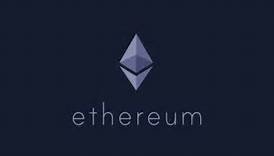The Economic Collapse and Cryptocurrencies

The Economic Collapse and Cryptocurrencies
Updated June 7, 2017
by Lisa Phillips
Many people have been following the X22 Report Financial Collapse Analysis podcasts on a daily basis. If you’re like me, you’re extremely worried about what US central bankers/US government will do before, during, and after the upcoming economic crash. One thing is certain, the indicators show this crash will be far worse than the meltdown of 2007/2008.
Personally, I fear a “haircut” on my savings account as was the case in Greece a few years ago. None of us can afford a 10% reduction in our finances, especially since over half of Americans have household debt exceeding $25,000.00. Once my preparations of food, water, clothing (especially socks, shoes and boots because there are no shoe/boot manufacturers in the USA), alternative light and heat sources, cash, silver coins, vitamins, and medication had been made, I decided to make some extra cash in the cryptocurrency markets, specifically Bitcoin, Litecoin, and Ethereum.
Is Bitcoin Real Money?
Short Answer: Yes!
Bitcoin is money for the Internet. It is a scarce digital commodity used as money by millions around the world. People buy coffee with Bitcoin at local shops. Others get paid in Bitcoin and use it to shop online. Friends use it to settle with whoever paid for dinner. Workers send Bitcoin back home to help family, regardless of where they live.
Since its start in 2009, Bitcoin has provided an alternative to traditional government-issued money. No single government, corporation, or nation controls Bitcoin. There is no need for a Bitcoin bank. People store Bitcoin in software called a wallet, which is available for almost any device.
Long Answer: Bitcoin is More than Money!
Bitcoin is more than a system to store and transfer value from one person to another. Bitcoin is a protocol, a computer network, and much more. Read the Getting Started guide first, then head over to the FAQ to learn more about Bitcoin.
Read more about Bitcoin https://www.bitcoin.com/getting-started
Excerpts from Cryptocoinsnews.com https://www.cryptocoinsnews.com/cryptocurrency/
What are Cryptocurrencies?
A cryptocurrency is a medium of exchange like normal currencies such as USD, but designed for the purpose of exchanging digital information through a process made possible by certain principles of cryptography. Cryptography is used to secure the transactions and to control the creation of new coins.
The first cryptocurrency to be created was Bitcoin back in 2009. Today there are hundreds of other cryptocurrencies, often referred to as Altcoins.
Most cryptocurrencies are designed to decrease in production over time like Bitcoin, which creates a market cap on them. That’s different from fiat currencies where financial institutions can always create more, hence inflation. Bitcoin will never have more than 21 million coins in circulation.
The technical system on which all cryptocurrencies are based on was created by Satoshi Nakamoto. While hundreds of different cryptocurrency specifications exist, most are derived from one of two protocols; Proof-of-work or Proof-of-stake. All cryptocurrencies are maintained by a community of cryptocurrency miners who are members of the general public that have set up their computers or ASIC machines to participate in the validation and processing of transactions.
Put another way, cryptocurrency is electricity converted into lines of code with monetary value. In the simplest of forms, cryptocurrency is digital currency. Unlike centralized banking, like the Federal Reserve System, where governments control the value of a currency like USD through the process of printing fiat money, government has no control over cryptocurrencies as they are fully decentralized.
History of Cryptocurrency
The first cryptocurrency was Bitcoin. Bitcoin was created in 2009 by a pseudonymous developer named Satoshi Nakamoto. Bitcoin uses SHA-256, which is a set of cryptographic hash functions designed by the U.S National Security Agency. Bitcoin is a cryptocurrency that is based on the proof-of-work system.
In April 2011, Namecoin, the first altcoin, was created to form a decentralized DNS to make internet censorship more difficult. In October 2011, Litecoin was released and became the first successful cryptocurrency to use scrypt as its hash function rather than SHA-256. This gave the general public the ability to mine for Litecoins without the purchase of specific hardware such as the ASIC machines used to mine Bitcoin.
Litecoin began receiving media attention in late 2013 – reaching a market cap of $1 billion. Ripplecoin, created in 2011, was built on the same protocol as Bitcoin but services as a payment system – think of it like a Paypal for cryptocurrencies that supports any fiat currency, cryptocurrency, commodity or even frequent flier miles.
Cryptocurrencies & Market Capitalization
Bitcoin is the largest cryptocurrency in both market capitalization, volume, acceptance and notoriety, but it’s not the most valuable coin. NEMstake, while only having a market cap of $1,116,720, trades at$1,117 a coin. Looking at the market cap, Litecoin takes second place after Bitcoin with Ripple close behind. One coin that you are more than likely familiar with is Dogecoin. Dogecoin ranks, on average, third in trading volume, but has a relatively low market cap – ranking number six in the largest cryptocurrency.
Bitcoin Wisdom
To view the current price and trends of Bitcoin and Litecoin in real time, click on the Bitcoin Wisdom
website link https://bitcoinwisdom.com/
Litecoin is a Bitcoin Fork What is a Bitcoin fork? Introducing new features into the Bitcoin protocol requires causing a fork in Bitcoin. The word fork in Bitcoin has a different and more complex meaning from the usual software development one. One might think that this is simple to introduce new features in the protocol — just release a new version of the software, and tell all nodes to upgrade. In reality, it's just impossible to assume that every node would upgrade. Some nodes in the network would fail to get the new software or fail to get it in time. We can differentiate between two types of changes: those that would cause a so-called hard fork and those that would cause a soft fork.
A hard fork in Bitcoin is needed to introduce new features into the Bitcoin protocol that were previously considered invalid. That is, the new version of the software would recognize blocks as valid that the old software would reject. Hard forks make the block chain split, and branches will never join together again. Every node in the network will be either on one or the other side of it based on which version of the protocol it is running. A recent example is the block size increase according to BIP-101 (https://github.com/bitcoin/bips/...).
A soft fork avoids the permanent split that a hard fork introduces, and is applicable only when adding features that make validation rules stricter. The nodes running the new software will be enforcing some new, tighter, set of rules. Provided that the majority of nodes switch over to the new software, these nodes will be able to enforce the new rules. An example of a change that was made via soft fork is pay-to-script-hash. Pay-to-script-hash was not present in the first version of the Bitcoin protocol. This is a soft fork because the old nodes would still be able to verify a valid pay-to-script-hash transaction. As interpreted by the old nodes, the script is simple — it hashes one data value and checks if the hash matches the value specified in the output script. Old nodes don't know to do the additional step of verifying that value itself runs a valid script. We rely on new nodes to enforce the new rules, i.e that the script actually redeems this transaction. Finally, in the future new cryptographic schemes or extra metadata in the coinbase parameter with a particular meaning could be introduced via a soft fork.
Soft forks are forward-compatible (old nodes will accept blocks created by new nodes). Only miners will have to upgrade, otherwise they risk ending up on the wrong side of the fork and losing money. Users and merchants can keep running older nodes, which will accept the newer blocks. Hard forks are not forward-compatible (old nodes may not accept blocks created by new nodes). With a hard fork, everyone (miners, users, and merchants) will need to upgrade to the new code.
For information about the upcoming expected hard fork to Bitcoin read our news post article: A Bitcoin Beginners Guide to Surviving the BIP 148 UASF:
What is Ethereum?
Ethereum is a decentralized platform that runs smart contracts: applications that run exactly as programmed without any possibility of downtime, censorship, fraud or third party interference.
These apps run on a custom built blockchain, an enormously powerful shared global infrastructure that can move value around and represent the ownership of property. This enables developers to create markets, store registries of debts or promises, move funds in accordance with instructions given long in the past (like a will or a futures contract) and many other things that have not been invented yet, all without a middle man or counterparty risk. Read more: Ethereum Project Official Website
Ethereum Price
To view the current price and trends of Ethereum in real time, click on the Ethereum Price
website link Ethereum Current Price
Coinbase Wallet
To buy and sell Bitcoin, Litecoin, and Ethereum, everyone needs a cryptocurrency wallet. I use Coinbase:
https://www.coinbase.com/join/575438d42cc81a126c001039
Cryptocurrencies are used worldwide. You can help grow the digital currency community and earn free Bitcoin. Using digital currency is more fun with friends! You can invite your friends by sharing your affiliate link once you create your Coinbase wallet. Once your friend buys or sells $100 of digital currency or more, you will both get $10 of free Bitcoin.
Coinbase SHIFT Visa Debit Card
The Coinbase SHIFT Card is a bitcoin VISA debit card. It works everywhere VISA is accepted. It works offline, online, and internationally. You can use the Card for everyday purchases at all your favorite merchants and at ATMs for cash withdrawals.
The Shift Card is the first Coinbase debit card that enables users to spend funds from any store of bitcoin value he/she controls. The folks at SHIFT are working hard to enable users to connect everything from bank, airline mile, and alternative currency accounts to their Shift Card.
At this time, only residents of the United States may apply for a Coinbase Shift Card.
In order to spend bitcoin via Coinbase, cardholders must reside in one of the following U.S. states:
AK, AL, AR, AZ, CA, CO, DC, DE, FL, IA, ID, IL, IN, KS, KY, LA, MA, MD, ME, MI, MO, MS, MT, NC, NE, NH, NJ, NM, NV, NY, ND, OH, OK, OR, PA, RI, SC, SD, TN, TX, UT, VA, VT, WA, WI, WVWith the Shift Card, you can connect your Coinbase account and spend bitcoin at over 40 million VISA merchants worldwide. The Shift Card is one of the most convenient ways to cash out and spend your bitcoin,
Disclaimer:
As with any investment, do your own research. The X22 Report is "one man's opinion". Anything that is said on the report is either opinion, criticism, information or commentary, If making any type of investment or legal decision it would be wise to contact or consult a professional before making that decision.
Use the information found in this article and videos as a starting point for conducting your own research and conduct your own due diligence before making any significant investing decisions.
The X22 Report videos can be found at https://www.youtube.com/user/X22Report/videos
All source links to the report can be found on the x22report.com site.
